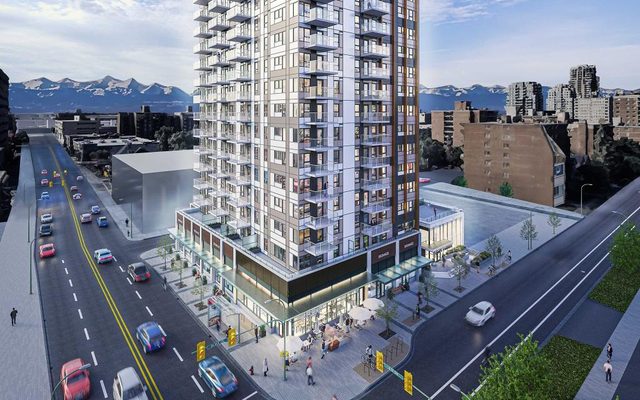Investor confidence continues to swell in Vancouver, boosted by the increased transaction volume over the past year relative to the doldrums of 2023.
One of the biggest trades in the city in 2024 was Deka Immobilien’s purchase of 402 Dunsmuir Street and 401 West Georgia Street for $300m from a joint venture between Oxford Properties and the Canada Pension Plan Investment Board. Tony Quattrin, who co-directs CBRE’s national investment team in Vancouver, worked on the deal.
Green Street News spoke with Quattrin about how the market played out in 2024 and what he sees ahead.
The last year turned out to be better than many people expected. Was this a surprise?
It was a significantly better year than the year before in terms of participants willing to get involved in the market, to make offers, to make bids, to transact. We managed to work hard over the previous couple of years to narrow that bid-ask gap between what clients want for a property and what was achievable. So, we did a good job of narrowing the gap.
“It was definitely a record year from volume of transactions”
The bids … were thin, but we pretty much transacted everything we took on – with few exceptions. The year was really quite a bit more successful in that regard. Some of those closings – even though they’re firm and binding transactions – have to be pushed to next year, which is typical in tight markets.
Accordingly, we won’t have quite the volume we were anticipating, but it was definitely a record year from volume of transactions, which signals that the market is better and improving.
What assets have been moving?
Unfortunately, the transaction business that we’re in, a lot of the business we’re doing is not what I would call “happy business.” We’ve got 12 receiverships for land. That means a lot of second- and third-mortgage money not being collected, along with some write-downs from institutional groups. That is challenging for all parties.
It has not been the most uplifting business, but we’re transacting and that means the market has adjusted to the new fundamentals.
What made this year more active than last year? Was it the amount of receiverships?
Obviously, the receiverships are a sidebar business that comes along in certain moments of recession, and we’ve just been through one, so that’s a natural byproduct of that event. I’d say by the end of next year, maybe even by the third quarter next year, I believe that that product class, if you want to call it that, will have dried up.
You’ll still have the odd receivership here and there every two or three years, but it’s not the way it’s been, which is a flood of them. In the short term, there’s more coming in. We see it on the horizon, and we’re pitching some, and we’re actively involved in others.
Do you think the recent interest rate cuts potentially can pull some of these receiverships that are lingering out of trouble while also providing a little bit more capital out there for regular transactions?
I don’t think it will. I think it may help facilitate the clearing of some of these receiverships, but it’s definitely too little too late for all stakeholders to be bailed out. You’ve got to remember, most of it is land, and most of that land is residential land, and most of that residential land was destined for condos.
The condo market in particular is broken for far too many reasons. Interest rates are only one of them. If you consider that there are many reasons beyond interest rates, the answer to your question is a resounding unequivocal no, rate cuts will not help or bail out many of those receiverships.
And it’s nobody’s fault. While rates are driven by market forces far beyond one entity, it is multiple factors that have contributed to the breakdown of this market.
Did you see anything in 2024 that you haven’t seen before?
Well, I’ve been around the industry 43 years, so you might be asking the wrong person because I’ve pretty much seen everything. But one of the differences this time around was this: if you want to call it a downturn in the real estate market brought on by a multitude of factors, it has persisted longer and was more pronounced than any of the experts predicted.
“There are more players in the market, but it’s still not robust”
It’s getting better in the sense that the market is getting more predictable. There are more players in the market, but it’s still not robust. I think for the first time ever … we are in the middle of witnessing industrial rates falling. Industrial rental rates are falling, sale values are declining, and vacancy rates in that asset class are rising. To me, that’s significant because Metro Vancouver consistently saw vacancy rates of near zero to 1% for the previous 20 years.
The other thing we are seeing is asset class values acting in defiance of fundamentals. So, here’s a fundamental in multifamily. Way back in 2008, they built 3,000 doors in Vancouver. We created 3,500 new households. So that year, household formation outstripped new supply by 500 doors.
Today in Vancouver, we’re technically 300,000 doors short, employing the foregoing supply and demand metric. That cumulative household formation versus new supply tells us that we have really unlimited demand for multifamily, for single-family homes, condos or rental properties. And yet, rental rates are now falling.
Why do you suppose that is?
We’ve hit something, an inflection point, where the amount of your annual income, there’s only so much that can go on towards rent. So, we’re not sure what people are doing. Are they living in their cars? Are they moving to other cities? Are they living in mom and dad’s basement? But we are not seeing an endless upward tick in people just paying more and more and more.
And with that inflection point, we now have a supply issue, because nobody can afford to build on what appears to be a maximum rental rate that the market can pay for new. And then the cost of construction, the government regulation, tax rules, municipal CAC charges, etc., etc. Proformas won’t work anymore to build residential.
Despite unlimited demand, we see the development community providers unable to provide supply, because the math doesn’t work to attract the capital, and the people moving in can’t pay the rent or afford the mortgage on their condo. So, you’ve got an affordability issue for end users. In short, the market is broken until all stakeholders can find a way to work together.
How do you think we fix that?
If I could answer that, I’d be a very wealthy man. But it’s basically a fundamental problem that has developed over many, many years. Too many government regulations, too many well-meaning, well-intended policies by uninitiated people that just made it more difficult for developers to build, to the point where the system is broken.
Whether it’s demands for affordable housing, demands for inclusionary housing, trying to be ESG or carbon-neutral, lack of trades formation. Values of land now have fallen so much that the land is almost an insignificant number in the equation, and you can bring land to zero, and the numbers remain difficult. And that’s not really an exaggeration. That’s actually the math.
Now, we had a big interest rate cut today. That could change, but we’ve got many, many, many levels of government regulation that have been layered upon layers over the years that have contributed to this. And so, you would need a tribunal of federal, provincial and municipal politicians to sit together with a housing czar, if you like, and say, “Look, this is what you need to do to fix it,” and they’d all have to do it.
And I just don’t think the political will is there or the ability to wade through the bureaucracy that’s required would be there.




